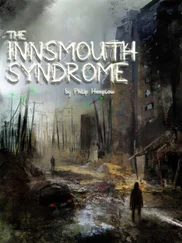1 ...8 9 10 12 13 14 ...28 ‘Yes, I have.’
‘And how did you find him?’
‘I have nothing to add to what Dr Cobb has told you.’
‘Agent Kraig, isn’t it true that Vice President Everhardt hasn’t said a single word since he became ill?’ The reporter’s dark eyes seemed to bore into Kraig.
Kraig frowned. He had had enough. ‘I repeat, I have nothing to add to what Dr Cobb has told you.’
Karen Embry nodded with a politeness tinged by lingering suspicion. She looked crisp and professional in her dark suit and blouse. Her hair had been brushed with care, and her makeup accentuated her delicate features. There were a lot of female reporters present, from the wire services and cable stations as well as the local media, but none was quite as attractive as Karen. It would have been hard for an observer to recognize in her the young woman who had dragged herself out of bed at seven o’clock this morning with a crushing hangover. But there was no such observer. Karen made sure that no outsider ever saw her without her professional armor on. And her beauty was part of that armor.
The news conference lasted another twenty minutes, all of them uncomfortable, as Dr Cobb parried questions from dozens of reporters. Finally, citing the late hour, the doctor called a halt to the session.
Grateful to make his escape, Kraig left the hospital and drove back to his office.
Since the attack on the Pentagon of September 11, 2001, many of the major federal agencies had been covertly moving around the city. The Secret Service was presently located in a nondescript office building a block away from HUD, in the shadow of Interstate 395. From the weedy parking lot full of unmarked vehicles no one would have guessed the place was a government facility. Only the name tags the agents and secretaries clipped on as they approached the entrance betrayed the true nature of the operation.
Most of the agents were out, but Kraig’s boss, Ross Agnew, was in. It was Agnew who had gotten Kraig this assignment. They had known each other as trainees twelve years ago. Agnew, a graduate of the University of Virginia and a former FBI agent, was a natural-born administrator and a gifted politician. He was the temperamental opposite of Kraig, a field agent who liked solitude and distrusted authority. But they got along well.
‘How is Everhardt?’ Agnew asked.
‘He didn’t look good to me,’ Kraig said. ‘But I’m not a doctor.’
‘Not good in what way?’
Kraig shook his head. ‘A sort of paralysis,’ he said. ‘He can’t talk, and he can’t obey simple commands. So far they can’t find anything wrong with him physically. If it’s mental, it’s bad mental.’
‘I take it he’s not in any condition to go back to work,’ Agnew said.
‘No way.’ Kraig shook his head.
Agnew thought for a moment.
‘Well,’ he said, ‘I’ll tell the White House. They’re not going to like it. Deep concern at the top level. You know what I mean.’
Kraig nodded. He cared little for politics. If it weren’t for that maniac Colin Goss angling to get into the White House, Kraig would not have cared who occupied the place.
‘Do you think the president will have to appoint another man?’ Agnew asked.
‘If Everhardt goes on this way, I’d say so,’ Kraig replied. ‘He’s incapacitated.’
‘Who do you think it might be?’
‘Search me.’ Kraig sat down.
He thought for a moment before saying, ‘Everhardt’s doctor was wondering about the epidemic in Iowa. There are some symptoms in common.’
‘Really?’ Agnew asked. ‘Which ones?’
‘I’m not sure.’ Kraig frowned. ‘I don’t know that much about Iowa.’
There was a silence.
‘Does the doctor think this might be something communicable?’ Agnew asked.
‘He doesn’t know. He seemed worried by the prospect.’
Kraig sat listening to the muted hum of the traffic on the expressway. He looked at the pictures on Agnew’s walls, most of which showed sailboats or fishing boats on the Chesapeake Bay. Agnew was leaning back in his chair with one leg crossed over the other. His knee stuck up well above the desktop. He was immensely tall, six feet eight or nine, and had once had the misfortune of guarding Chris Webber for three quarters in the NCAA semifinals.
Then he asked, ‘Do you see this changing our drill about the president or the top executive people?’
Agnew raised an eyebrow. ‘Why would it change anything?’
‘I had a reporter ask me that question at Walter Reed,’ Kraig said. ‘It was a strange question, but it had me thinking in the car. What if it were possible to incapacitate a public official intentionally, as a form of terror?’
‘Hmm,’ Agnew mused. ‘The Ipcress File . Is that what you’re thinking of?’
‘Yeah. If you can’t kill a guy, or force him out through scandal, you mess up his mind somehow.’
‘Science fiction,’ Agnew mused. ‘But anything is possible.’
There was a silence.
‘Why don’t you fly out there and see what you can learn?’ Agnew asked.
‘Iowa?’
‘Yeah.’
Kraig nodded. ‘Okay.’
‘But first go home and get a good night’s sleep,’ Agnew said. ‘I have a feeling the next few weeks aren’t going to be fun.’
Kraig gave Agnew a long look. ‘Right,’ he said.
Kraig stood up and left the office.
Kraig didn’t get home to his Virginia condominium until after eleven. He was looking forward to a shower and an evening of reading and music.
His profession forced him to read newspapers avidly and to be aware of current events and the trends behind them. He got so sick of the real world after a day of work that he couldn’t bear to watch television at home. He listened to a lot of music – Coltrane and Miles Davis when he was younger, but increasingly Beethoven and Mozart – and read novels. He looked for stories as far removed as possible from this time and place. Mark Twain was a favorite. So were Balzac and Dumas. He liked to immerse himself in the longer Dostoyevsky novels, and sometimes even read Shakespeare.
He had weights in his basement, and always found time to do some bench pressing and curling. He ran in the mornings to keep his legs in shape. Since his divorce he found concentration and work easy, but sleep difficult. In some ways the loneliness of his profession suited him. In other ways he felt empty and rootless, adrift in a life that didn’t really belong to him.
He e-mailed his daughter in Florida every day, and spoke to her on the phone once a week. She was ten now, and very busy with her own life. He spoke to his ex-wife as seldom as possible.
The apartment building loomed before him with its combined aura of home and of homeless-ness. Lights were on in all the units except his own. Sighing, he turned off the car.
There was a girl sitting on the steps. As he drew closer, carrying his briefcase, he recognized the aggressive young reporter from the foyer at Walter Reed.
‘No comment,’ he said. ‘I’m off duty.’
‘My name is Karen Embry,’ she said, getting to her feet and holding out a hand. ‘I don’t want a story.’
Kraig stood looking at her without taking her hand. She was of medium height, maybe five five, but she seemed smaller because she was visibly underweight. The journalist’s typical lean-and-hungry essence was evident in her, but there was something else as well, something downright undernourished and, Kraig thought, sad. She had long dark hair, which she obviously made the most of. Her complexion was fair, her eyes large and dark. She was very pretty, or would have been had she been anything but a reporter.
These impressions kept him from sweeping by her into the condo without a word.
Читать дальше












